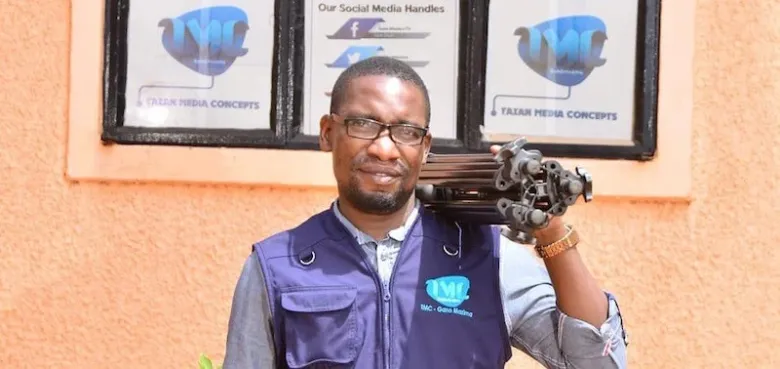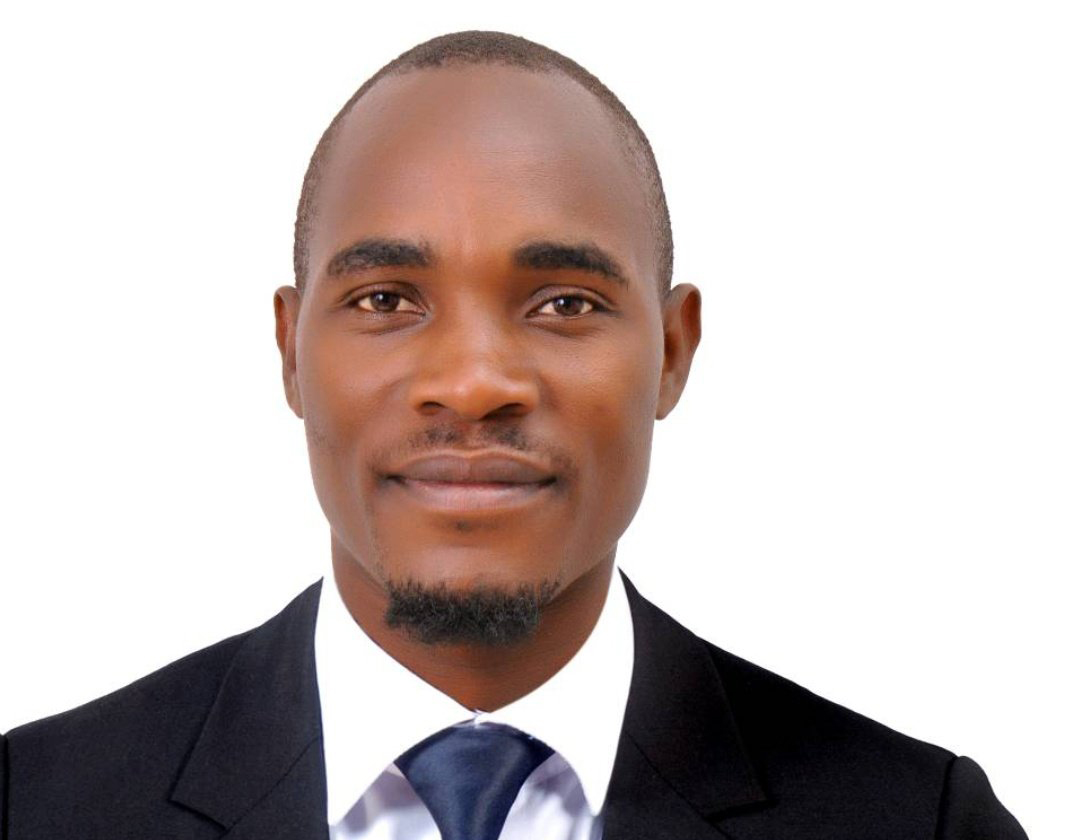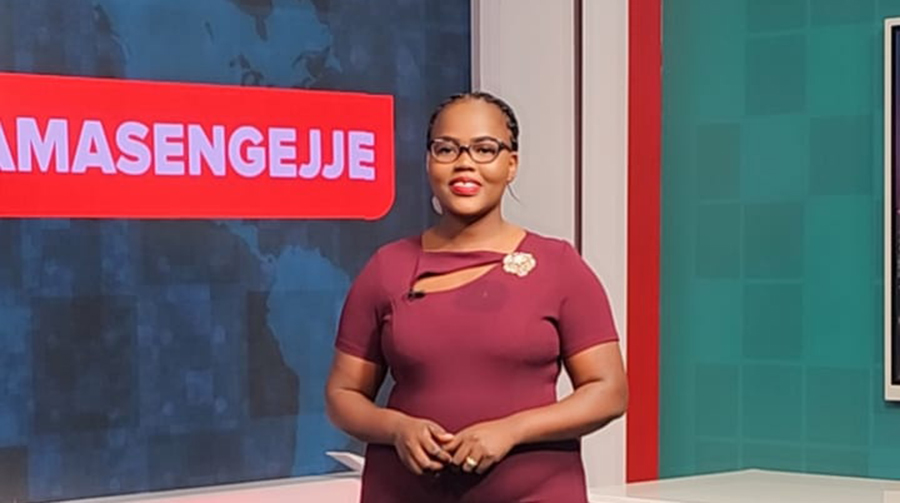For those with a long memory, 2012 was the year that brought Dean Lubowa Saava, a fiery journalist, to national prominence. It all started in Luzira, a suburb of Kampala, when an eviction, overseen by George Agaba, the then-director of planning at the Kampala Capital City Authority (KCCA), turned deadly. One person lost their life as tensions boiled over.
Amid the pandemonium, one journalist stood alone, clutching a small camcorder, capturing every heart-wrenching moment. That journalist was Saava. The footage he recorded that day was not just a story. It had the impact of a grenade lobbed into a packed public market.
Agaba, in a desperate bid to keep the story under wraps, allegedly pursued Saava to NTV’s offices at Serena Conference Hall, offering him Shs 2 million to bury the tape. Saava refused, aired the story, and the fallout was seismic: Agaba’s tenure at KCCA crumbled. This moment, like a spark in dry grass, ignited Saava’s reputation as a journalist who thrives in the heat of controversy.
Fast forward to 2025, and Saava is once again at the centre of a storm. This time, it is a war of words with Nyombi Thembo, the executive director of the Uganda Communications Commission (UCC). On September 4, 2025, Thembo took to X, accusing Saava of attempting to blackmail him through his online platform, TV10 Gano Mazima. Thembo vowed not to bow to what he called “desperate attempts at intimidation.”
The feud escalated when UCC, alongside police, raided Saava’s offices in Mengo, dismantling and seizing broadcasting equipment. Thembo cited multiple violations, including Saava’s media outlet operating without a valid broadcast license, illegal equipment installation, and failure to comply with UCC directives.
Sources say Saava, ever the daredevil, reportedly fled the scene “at rocket speed,” leaving his staff to watch helplessly as authorities carried away his tools of trade.
A maverick with a microphone
Saava, now in his early 40s, has been a fixture in Uganda’s media landscape for over 15 years. For those who know him, Saava’s journey into journalism was anything but conventional. Before picking up a microphone, he dabbled as a deejay and musician. His early love for music, inspired by Ugandan artists like Silver Kyagulanyi and Eddy Yawe, gave him a flair for performance, a trait that has defined his “bombastic” journalistic style.
With a degree in Information Technology and Mass Communication, Saava carved a path through some of Uganda’s biggest media houses: CBS FM, NTV, NBS TV, and the Gwanga newspaper.
But Saava’s career has been a walk between brilliance and controversy. Like Rush Limbaugh, the late American conservative commentator, Saava is a polarizing figure whose outspokenness often overshadows his investigative skills. Limbaugh, with his booming voice and unapologetic opinions, dominated American airwaves for decades, blending facts with fiery rhetoric that sometimes felt like personal attacks.
Similarly, Saava’s broadcasts on TV10 Gano Mazima—a digital outfit he founded, operating on YouTube, TikTok, and a website (currently inactive)—are less about measured reporting and more like verbal cocktails. He does not just report; he roars, taking aim at everyone from National Unity Platform (NUP) leaders to Mengo officials. His critics call him a “gun for hire,” accusing him of trading stories for cash, a claim Saava dismisses as slander. Yet, his supporters see a journalist unafraid to walk into the lion’s den, exposing the truths traditional media outlests shy away from.
Luzira legacy
Whichever way you look at it, the 2012 Luzira eviction remains Saava’s defining moment. Picture a lone journalist, camcorder in hand, standing firm as chaos unfolds like a storm breaking over a calm sea. His footage of the violent eviction, which claimed a life was a mirror held up to power. By rejecting Agaba’s alleged bribe and airing the story, Saava did not just report the news; he shaped it. The story’s impact rippled, leading to Agaba’s ouster and cementing Saava’s reputation as a journalist who could make the powerful cry.
But Luzira was not a one-off. Saava’s years in journalism are studded with stories that blend courage with controversy. As the founding editorial director of TMC Media Group, which runs TV10, he has tackled complex political and crime stories with a zeal that’s both admired and criticized.
In December 2024, he broke a story about corruption allegations against David Kalemera, a senior presidential advisor at the Uganda Revenue Authority. Another report delved into a scandal involving Kampala University’s founder, Prof Badru Kateregga. These stories, however, often come with a price.
The Kampala Journal: The news platform “that only tells the truth by mistake”
Troubled path
Saava’s career has had some bold scoops and brushes with the law. In 2018, he was arrested for obtaining money by false pretenses and human trafficking related to his labour recruitment agency, Global Skills International, after 37 complaints were lodged against him.
In April 2021, he faced charges of blackmail, offensive communication, and cyberstalking, landing him in Kitalya Prison. He was accused of defaming Captain John Kassami, a businessman and singer Eddy Kenzo, alleging they recruited young people into homosexuality. These incidents paint a picture of Saava who, like a bull in a china shop, charges headfirst into controversy, leaving shattered glass in his wake.
Whether true or not, there are claims that Saava has connections with powerful political figures who at times shield him from the law.
Comparing Saava to Rush Limbaugh is not stretch, for those who follow the intersection between the media and politics in the US.
They are cut from the same cloth. Limbaugh, who died in 2021, was a master of provocation, using his radio platform to champion conservative causes while lambasting opponents. His critics called him divisive, accusing him of peddling half-truths for clout. Saava mirrors this. His broadcasts, often laced with personal attacks, have earned him a loyal following and fierce enemies.
Like Limbaugh, Saava is full of himself. He is like a peacock strutting through the media jungle, feathers on full display. Both men thrive on being the loudest voice in the room, wielding their platforms like swords in a duel.
Yet, here is the key difference. Limbaugh operated in a structured media environment with clear legal boundaries. Saava, navigating Uganda’s volatile media landscape, dances on the edge of a cliff. His critics accuse him of extortion and professional misconduct, claiming he was expelled from CBS, NTV, NBS, and Gwanga Mujje for backstabbing colleagues. They paint TV10 as a front for a “new extortionist scheme.”
Saava, however, frames himself as a victim of a system that punishes truth-tellers, much like Limbaugh cast himself as a martyr for free speech.
For all his controversies, Saava’s defenders argue he is driven by a passion for justice. Those who have worked closely with him describe a journalist with a relentless work ethic and a knack for uncovering hidden truths. His human rights activism and community journalism reflect a man who, at his core, wants to amplify the voiceless. Yet, his methods—bold, brash, and sometimes reckless—often overshadow his intent. Like a chef tossing chili into every dish, Saava’s spice can overwhelm the palate, leaving some to question his credibility.
As Saava’s feud with Thembo and the UCC unfolds, the stakes are higher than ever. The raid on TV10’s offices has crippled his operations, but if history is any guide, Saava will not stay silent for long. In fact, he is already talking. Like one person said, Saava is a man who thrives in the flames, a journalist who sees controversy not as a barrier but as fuel.







